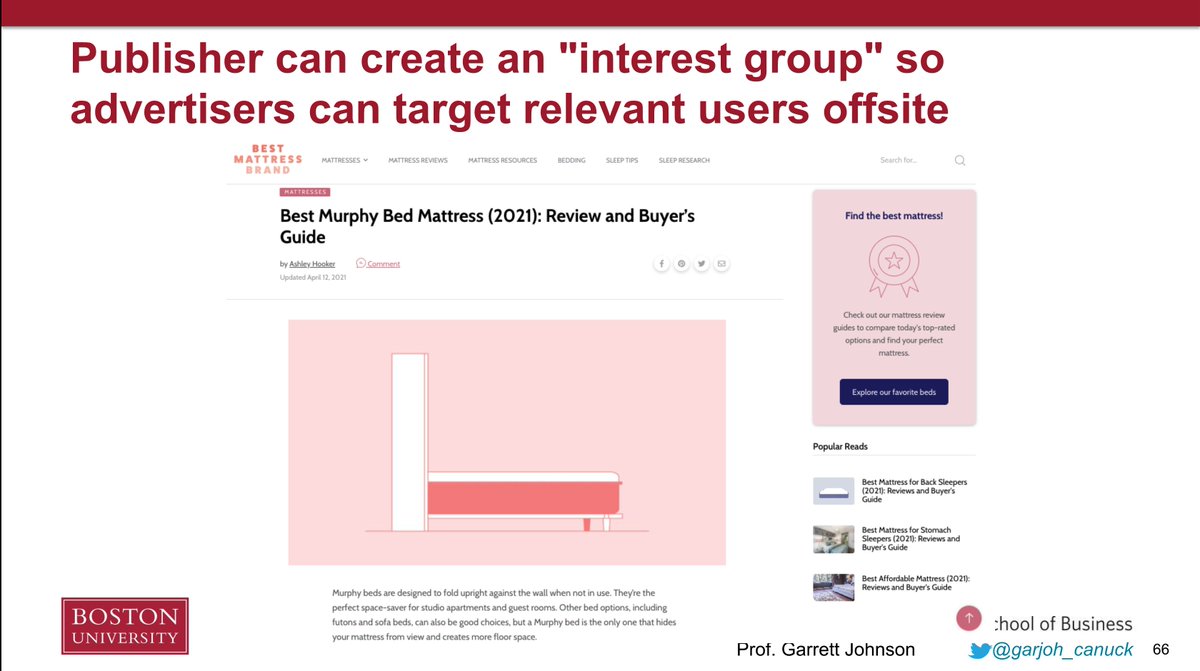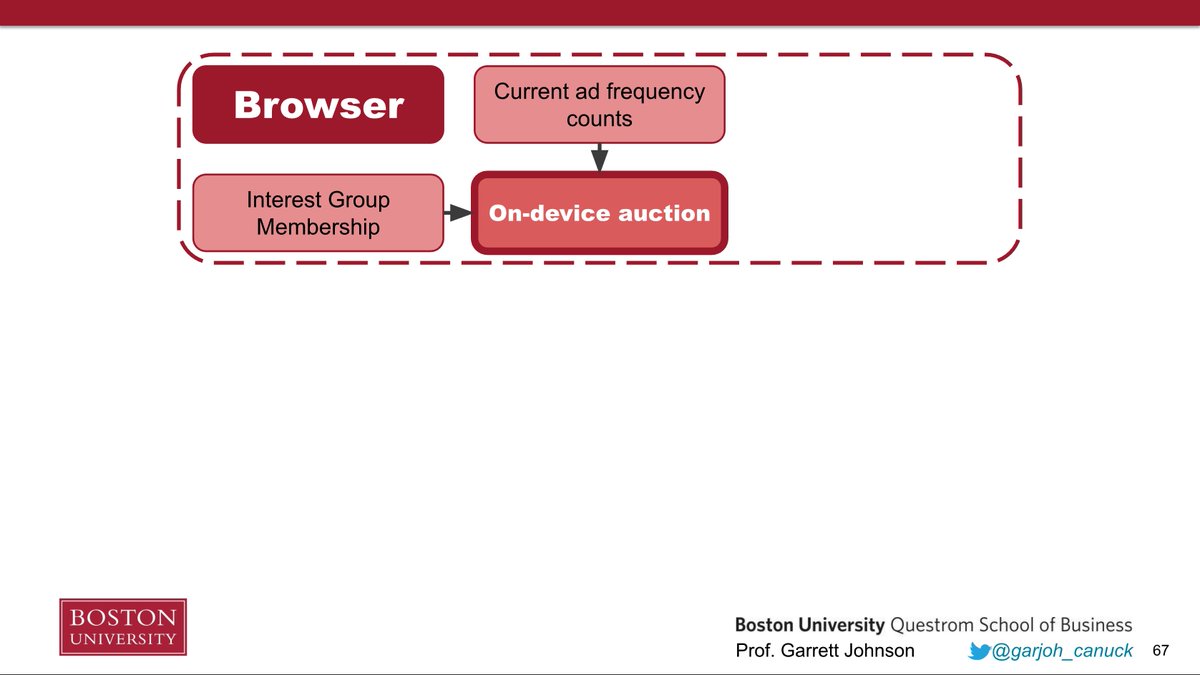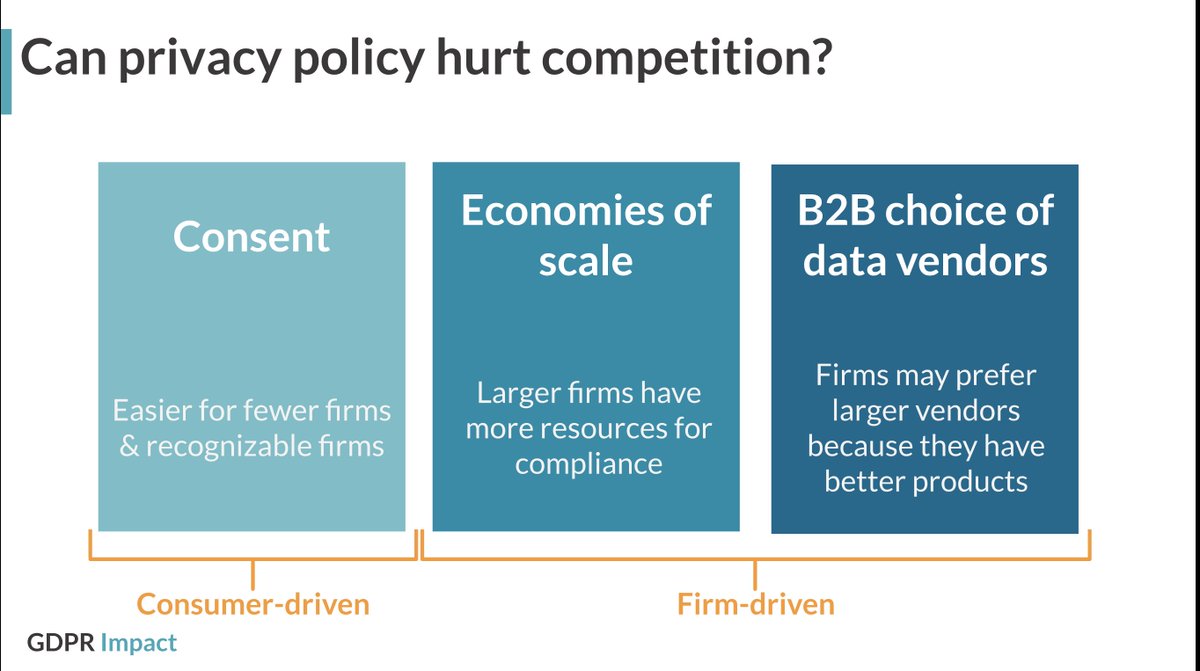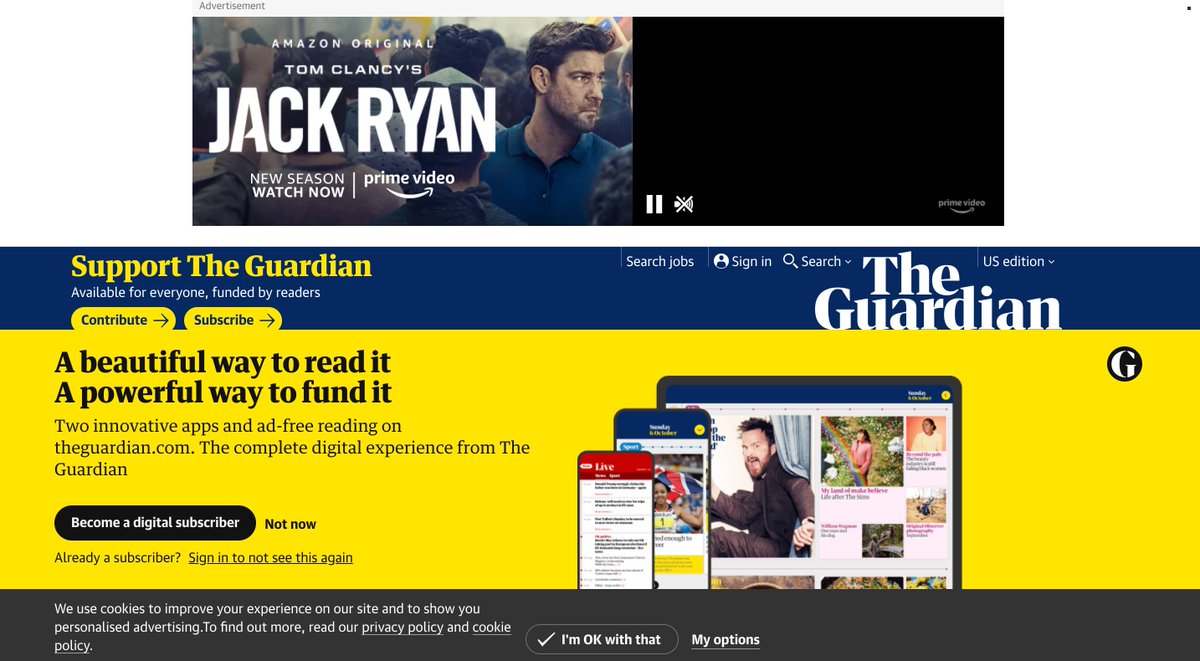
Thread explaining FLEDGE (formerly TURTLEDOVE).
Online advertising generates value for publishers, advertisers, & users. Now, Google & others are proposing alternatives that preserve this value while better protecting user privacy under the "Privacy Sandbox" proposals. 1/12
Online advertising generates value for publishers, advertisers, & users. Now, Google & others are proposing alternatives that preserve this value while better protecting user privacy under the "Privacy Sandbox" proposals. 1/12

The public discussion of #PrivacySandbox is dominated by #FLoC, but many tech solutions are required to satisfy advertising use cases while protecting privacy. In particular, #FLEDGE propose more fundamental & interesting changes to the status quo. 2/
https://twitter.com/garjoh_canuck/status/1405612777364992009
The key to FLEDGE is to move user targeting information onto the *browser*, rather than broadcasting a cookie ID to the adtech ecosystem so advertisers can bid on ad opportunities based on what they know about that cookie ID. The prototypical FLEDGE use-case is retargeting. 3/
Example: When a user visits Macy's site, Macy’s can add that user to an *interest group* (IG) on the browser. Macy’s can then (re)target users who visited its site: the set of users with Macy’s IG in their browser. The IG also specifies the ads Macy’s wants to show the user. 4/ 

Any site could set up an interest group. Consider a mattress review site: It could create an interest group and sell the opportunity for mattress manufacturers to show ads to users who are in the market for a mattress. This is affiliate marketing. 5/ 

To preserve user privacy while allowing targeted ads, the user’s browser runs an on-device ad auction. As inputs, the browser knows the set of eligible advertisers from the user’s interest group membership as well as info like the user’s ad frequency count. 6/ 

Where does the seller (the publisher) fit? The seller specifies the auction rules and lists eligible advertisers, which tells the browser how to choose a winning ad. This has the knock-on benefit of potentially codifying what can otherwise be an opaque process. 7/ 

Where does the buyer (advertiser) fit? The buyer already specified its bidding strategy and ad creatives in the interest group. 8/ 

But campaigns change, so how can buyers prevent zombie🧟 interest group ad campaigns from emptying their wallets? The buyer loads real-time elements of its bidding strategy onto a (trusted) server, which in turn tells the on-device auction how to bid (or stop bidding!). 9/ 



The on-device auction then has all it needs to:
1) select a well-targeted ad based on the user’s browsing
2) allow sellers to optimize revenue
3) allow buyers to bid intelligently.
Voilà, a new ad is born on the user’s device (not an external ad exchange)! 10/
1) select a well-targeted ad based on the user’s browsing
2) allow sellers to optimize revenue
3) allow buyers to bid intelligently.
Voilà, a new ad is born on the user’s device (not an external ad exchange)! 10/

Why so convoluted? FLEDGE does not want the publisher or advertiser to know the ad chosen by the browser (!!), because this reveals the user’s cross-site behaviour: e.g the user visited Macy’s then the publisher's site. 11/ 

To do so, FLEDGE proposes to eventually render the ad within a data firewall called a “fenced frame.” In the interim, FLEDGE allows ad-level reporting, but this will eventually be rolled up so that buyer/seller see total ad spend/revenue but not who sees what ad.
END/ 🐦🦆🦢🦜🏸
END/ 🐦🦆🦢🦜🏸

• • •
Missing some Tweet in this thread? You can try to
force a refresh
















